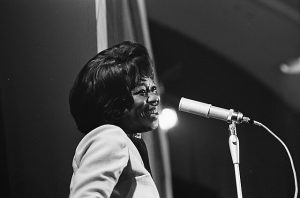Remembering Von Freeman
October 3, 1923 – August 11, 2012
Howard Reich – Chicago Tribune
Revered around the world but never a major star, worshipped by critics and connoisseurs but perpetually strapped for cash, the towering Chicago tenor saxophonist Von Freeman practically went out of his way to avoid commercial success. When trumpeter Miles Davis phoned Freeman, in the 1950s, looking for a replacement for John Coltrane, Freeman never returned the call.
When various bandleaders — from Davis to Billy Eckstine to King Kolax — tried to take him on the road, where his talents could be heard coast to coast, Freeman regularly turned them down. His refusal to leave Chicago during most of his career, except for the briefest out-of-town engagements, cost him incalculable fame and fortune but also enabled him to create some of the most distinctive, innovative work ever played or recorded on a tenor saxophone.
And his devotion to the city where he was born, 88 years ago, made him a Chicago jazz icon honored with major tributes in Symphony Center, Millennium and Grant parks, as well as standing-room-only crowds for his weekly gig at a remote bar on East 75th Street, the New Apartment Lounge. This year, he became one of the few Chicago-based musicians to receive a Jazz Masters Fellowship from the National Endowment for the Arts, regarded as the nation’s highest jazz honor. Freeman died Saturday at Kindred Chicago Lakeshore care center of heart failure, said his son, Mark Freeman.
Von Freeman always considered his relative obscurity — which lasted nearly until the final years of his career, when the world started to recognize his genius — a blessing. It enabled him to forge an extremely unusual but instantly recognizable sound, to pursue off-center musical ideas that were not likely to be welcomed in the commercial marketplace.
“They said I played out of tune, played a lot of wrong notes, a lot of weird ideas,” Freeman told the Tribune in 1992. “But it didn’t matter, because I didn’t have to worry about the money — I wasn’t making (hardly) any. I didn’t have to worry about fame — I didn’t have any. I was free.”
Freeman used that freedom from commercial pressures to pursue a music that was as unorthodox as it was intellectually demanding, as idiosyncratic as it was deeply autobiographical. In this sense, he represented the quintessential jazz musician, forging a musical voice that was unique to him, an art that was influential but ultimately inimitable.
“You hear one note, you know that’s his sound,” Fred Anderson, another iconic Chicago tenor saxophonist, once said of his colleague. “It’s a personal sound. You can tell he listened to all the guys — he listened to Lester Young and Charlie Parker; he took a lot from a whole lot of people and created Von Freeman.”



